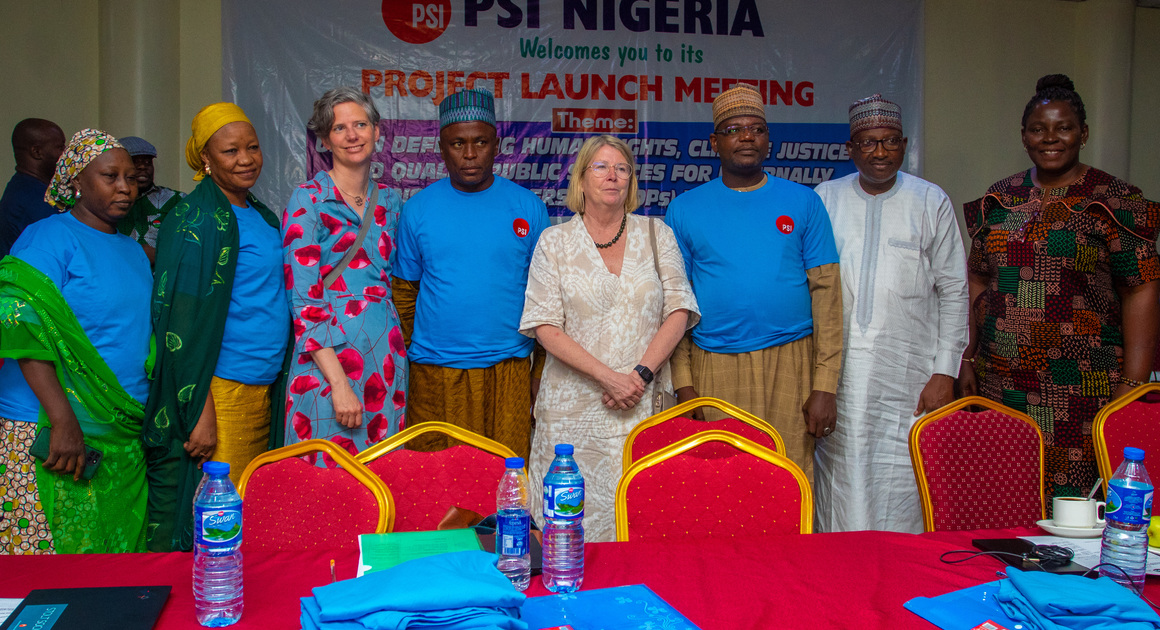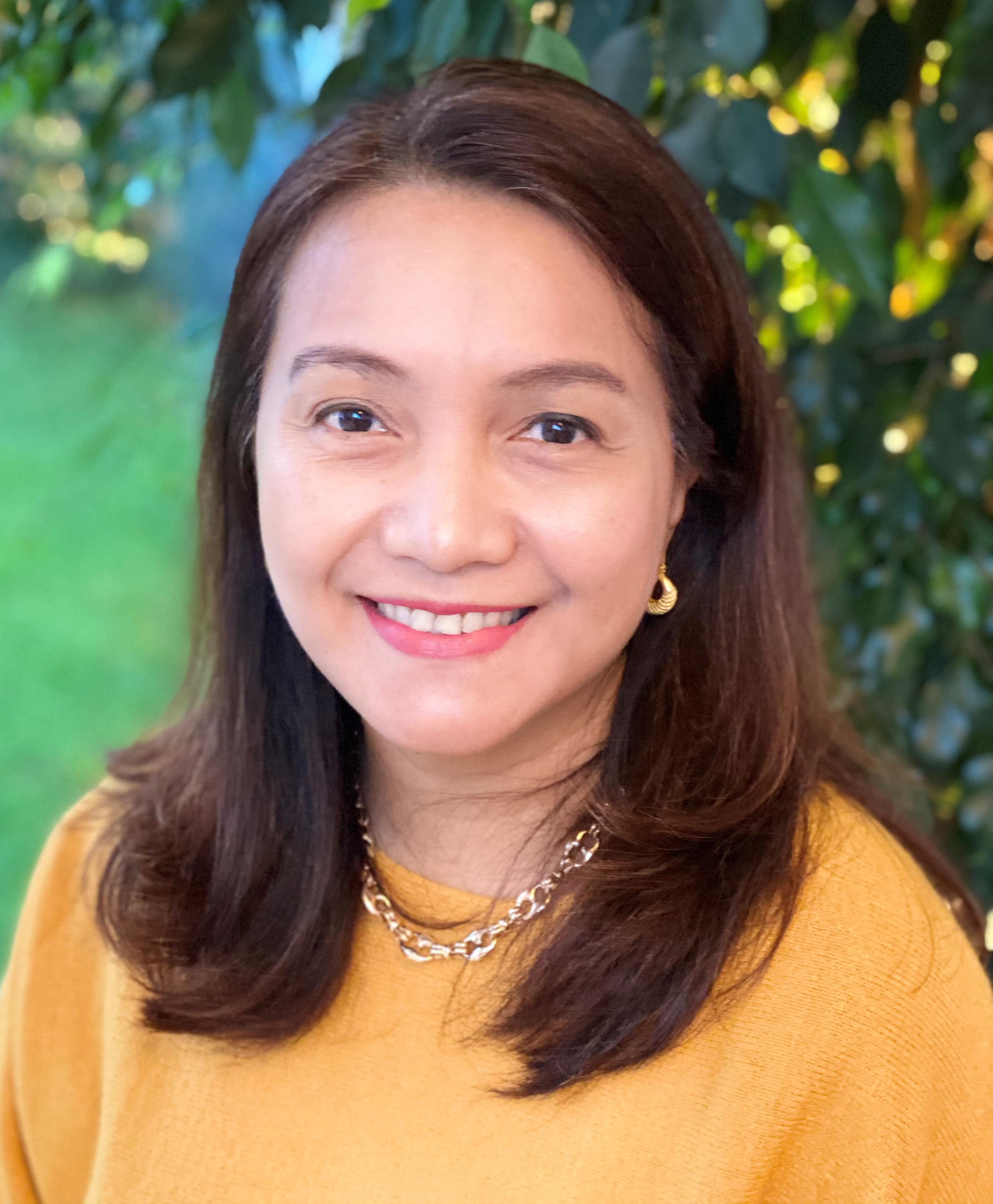- Tags (11)
Internally Displaced Persons Unions defending Human Rights, Climate Justice and QPS for IDPs in Nigeria

PSI, in partnership with Union and Union and Swedish Affiliate-ASSR, held a three-day workshop in Abuja on 29 May – 2 June 2023 to launch the second phase of the PSI Project on Unions Defending Human Rights, Climate Justice and Quality Public Services for internally displaced persons (IDPs) in Nigeria.
- Read this in:
- en

Genevieve Gencianos

Moradeke Abiodun-Badru
The second phase follows after the success of the first phase of the project in 2020-2022 in building the capacity of PSI health and social care sector unions, namely the National Association of Nigerian Nurses and Midwives (NANNM) and Medical and Health Workers Union of Nigeria (MHWUN) to defend the human rights of IDPs to quality public services.
Nigeria is the country that hosts the largest population of IDPs within West Africa. Faced with the compounded challenges of conflicts and the impacts of climate change, a strengthened role and capacity of frontline public service workers in addressing internal displacement is crucial. The second phase of the project aims to strengthen the role and capacity of public service unions in addressing internal displacement from the perspective of human and labour rights, climate justice and access to quality public services.
The three-day activity consisted of a project orientation, a training on advocacy, an interactive panel and information session with key stakeholders, and a training on mapping and participatory research that will be carried out to build the evidence base for the project.

Photos of the meeting
Click hereAt the opening of the workshop, PSI Regional Secretary for Africa and Arab Countries Sani Baba welcomed the participants by congratulating all the project partners for the successful outcomes of the first phase, citing how union interventions in the project have been shared in various national, regional and global policy advocacy of the PSI. Genevieve Gencianos, PSI Migration Programme Coordinator, lauded PSI affiliates in Nigeria for generating good practice examples of promoting safety and decent working conditions for health and social care workers providing services to IDPs and host communities including during the years of the pandemic. Moradeke-Abiodun Badru, PSI Nigeria IDP Project Coordinator, welcomed the extension of the project to its second phase as Nigeria continues to grapple with the complex inter-linkages between conflict and climate induced displacement. Maria Ostberg-Svanelind, ASSR International Secretary, echoed the successful outcomes of the first phase and affirmed that continued solidarity support is needed for this flagship project.
Solidarity messages were conveyed by invited guests and stakeholders working with PSI in the project, namely the National Commission for Refugees, Migrants and Internally Displaced Persons, the Organization of Trade Unions in West Africa, the Nigeria Labour Congress, Solidarity Centre and Friedrich Ebert Stiftung (FES-Nigeria). Representing the PSI Affiliates, Tony Oghagbon, Deputy General Secretary of Medical and Health Workers Unions of Nigeria, expressed his appreciation to Union to Union and ASSR for their partnership and solidarity support while encouraging continued collaboration with the government agencies and key stakeholders in strengthening social protection for public service workers who are exposed to the dangers of working in such fragile, conflict and violent setting.
Video
Nurse Afiniki Bako was kidnapped on 21 April 2021 by the Boko Haram along with another nurse while they were on a night shift in a public hospital in Kaduna State, in the northern part of Nigeria. Here's her story
Public health workers on the frontline in conflict zones: A Nurse’s Story
Such situation was exemplified in the story shared at the panel discussion by Afiniki Bako, a young female nurse. Nurse Afiniki was kidnapped at gunpoint by Boko Haram insurgents in 2021 while she was on a night duty in a hospital in Kaduna State, in northwestern Nigeria. Afiniki was held in captivity for more than two months, living in harsh conditions in the Boko Haram camps while tending to their sick and injured. Her union, the National Association of Nigerian Nurses and Midwives (NANNM), held protests to the government and mobilised for her release, along with another fellow nurse who was kidnapped with her. The union ensured their safe return to their families and organized psychosocial support for their recovery.
Another story was also shared by nurse Sonia Mbelokpo from Bayelsa state, which was devastated by the flood disaster in 2022. Sonia, along with other nurses and health workers who are members of NANNM, worked heavy shifts in caring for the sick and the injured from the devastating floods. They themselves were heavily affected by the calamity, with their homes flooded, and schools, hospitals and health facilities submerged in floodwaters. Just like Sonia, public service workers are on the frontlines providing emergency response, care and other essential services when disasters strike.
Participants in the workshop underscored the importance of ensuring safety, decent work and social protection for public service workers on the frontlines of disasters and displacement situations. They stressed the importance of well-funded public services to serve the needs of IDPs and their host communities. They called for coordination among agencies and stakeholders in a whole-of-society approach, and for trade unions to include issues of internal displacement in their union agenda in organizing, collective bargaining and social dialogue for workers’ rights, climate justice and the defence of quality public services.